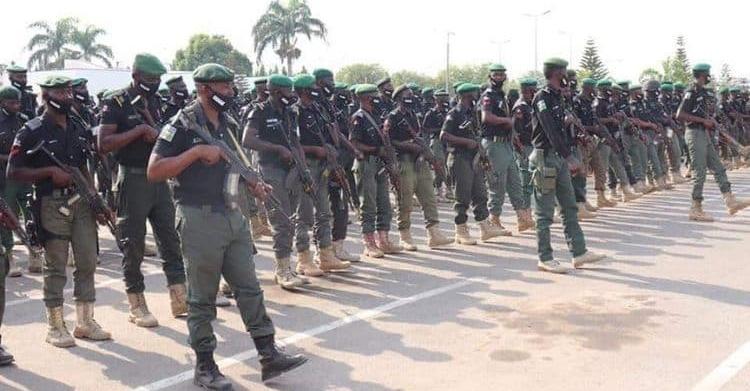Physio-social support to frontline personnel will reduce depression – Police
The Borno State Police Command has disclosed that strengthening capacity and provision of adequate psychosocial support to the personnel at the frontline will reduce depression among security agencies fighting insurgency in the northeast region. The State Commissioner of Police, Abdu Umar, disclosed this during a three-day workshop organised for personnel of the Nigeria Police Force […]

Police
The Borno State Police Command has disclosed that strengthening capacity and provision of adequate psychosocial support to the personnel at the frontline will reduce depression among security agencies fighting insurgency in the northeast region.
The State Commissioner of Police, Abdu Umar, disclosed this during a three-day workshop organised for personnel of the Nigeria Police Force (NPF) and Nigeria Security and Civil Defence Corps (NSCDC) by the Management of Conflict in Nigeria (MCN) held in Maiduguri.
- Spike in COVID-19 cases: Why you should get vaccinated
- ASUU strike: Electricity, bank, aviation workers join NLC nationwide protest
CP Abdu Umar, who was represented by Deputy Commissioner of Police, Mohammed Bello, noted that the workshop is timely considering the peculiarities of Borno, saying training and partnerships of security agencies would curb crimes and criminality.
“To me, strengthening the capacity of the personnel will reduce crimes, especially those who are on the frontline, I think it will assist us in prosecuting the war.
“We need to train and retrain our personnel with views of strengthening their capacity. To handle cases that are reported before their areas of responsibility professionally.
“Also, we have personnel from NSCDC, Police, DSS and NAPTIP. There is a need for the personnel to partner and network together in the best interest of the country.
“A reasonable number of personnel have experienced depression, they need psycho-social supports. So, if it is not readily available, they go into crimes because we are in forefront of fighting insurgency, many of them are going into hard drugs.
“As you know, hard drugs can lead to rape, stealing, armed robbery and other crimes. We are going to create awareness and I believe with awareness the crimes and criminality will be reduced after this training.” Bello said.
NSCDC Commandant in the State, Musa Farouk Boyi, decried the high rate of crimes in the country and urged the religious and traditional leaders to support the security agencies to curb the menace.
“We are in partnership with the community and religious leaders to address the abnormalities that are going on in our society. I believe with this training we are going to change the narrative.
“Security is a collective responsibility, this will help to bring about normalcy in the society so that all of us can have the resilience of society and community people believing,” Musa assured.
Gafaar Mohammed, who is incharge of Administration and Resource at MCN, explained that the capacity-building workshop was funded by the European Union, supported by the British Council and implemented by MCN.
He noted that 60 gender desk officers from Police Force and NSCDC participated in the training aimed at improving the capacity of the personnel on how best to handle family conflicts.
